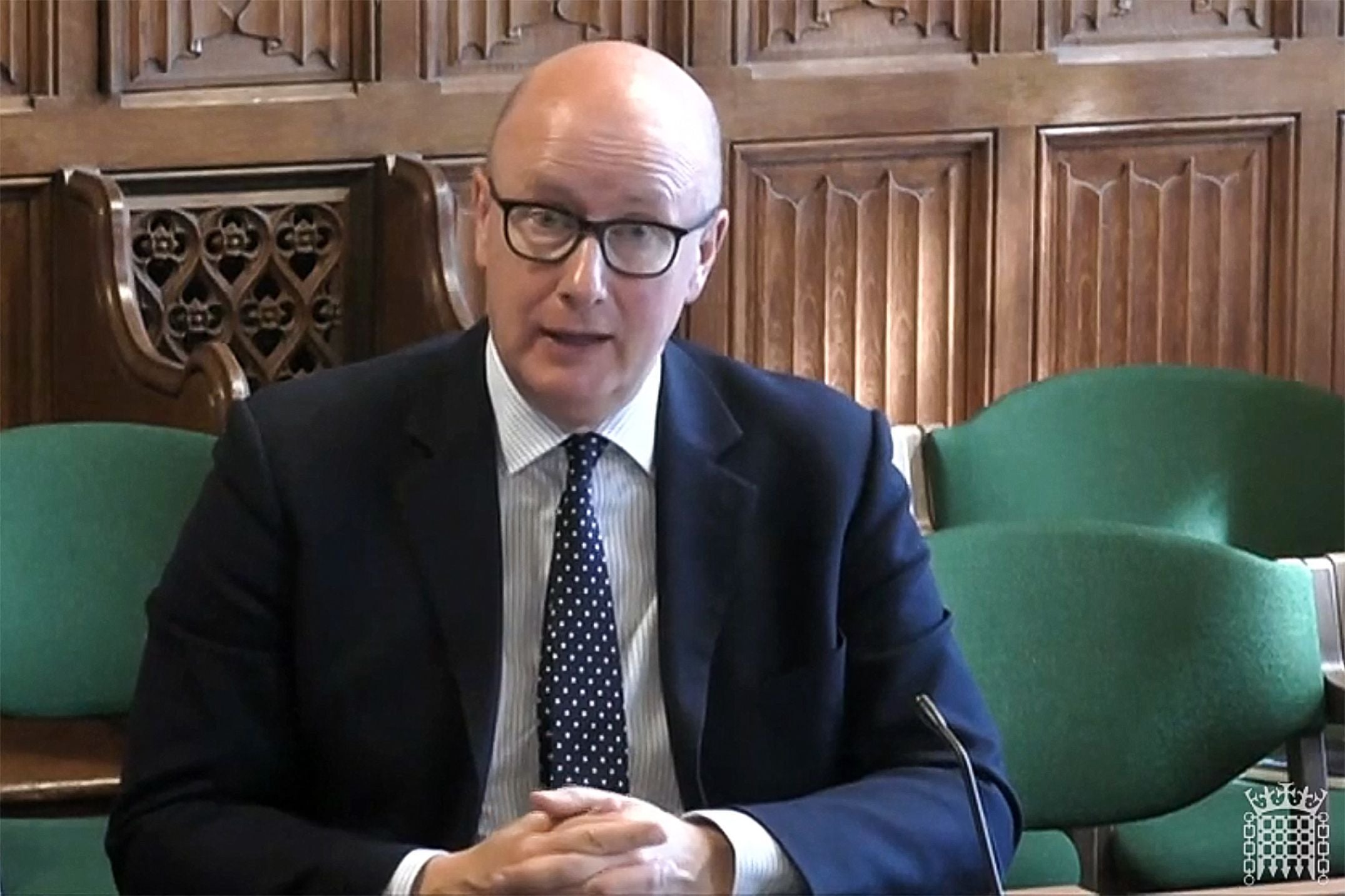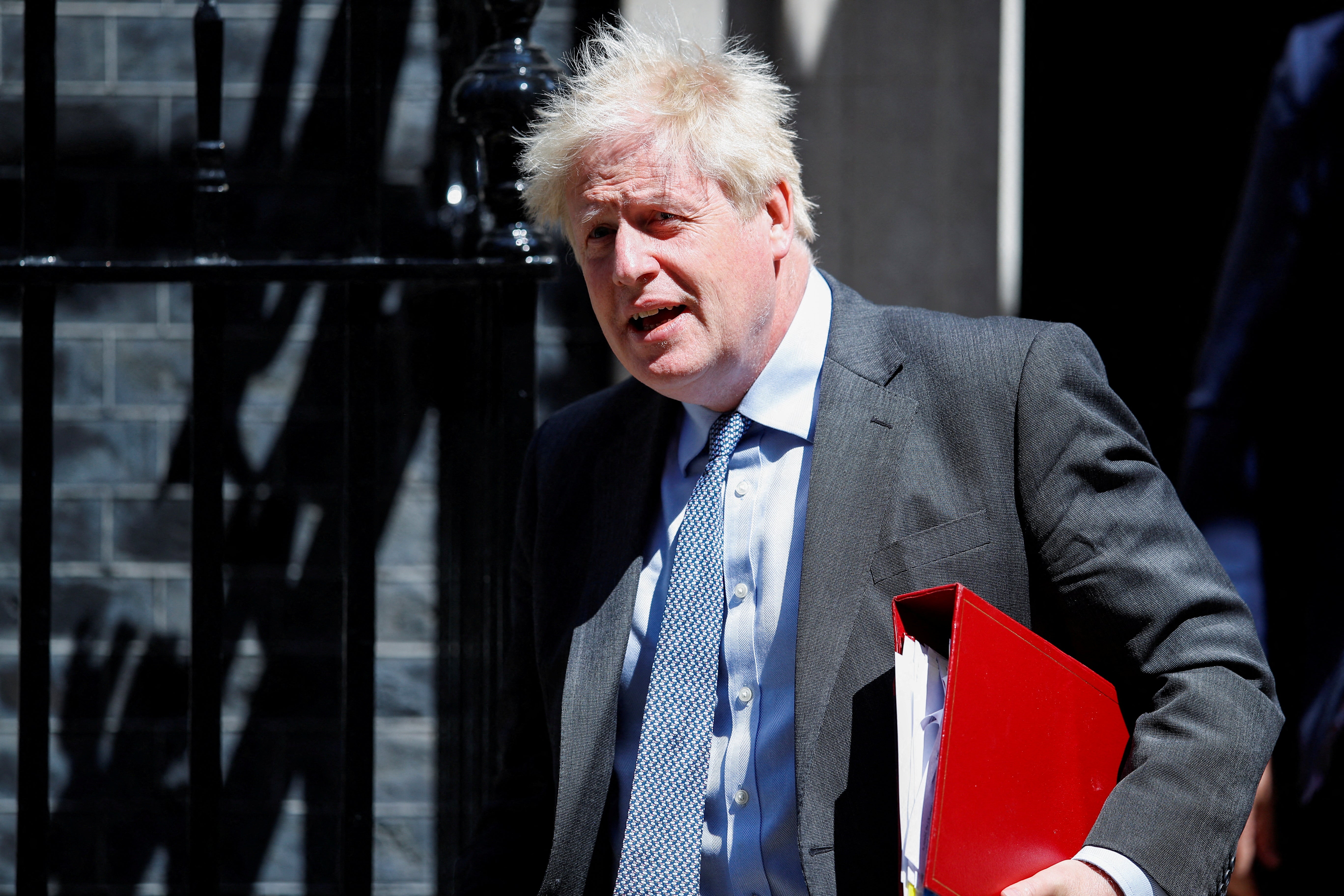Lord Geidt resignation: A short history of government ethics advisers
Boris Johnson facing fresh criticism after hinting he may not replace outgoing code of conduct czar
Your support helps us to tell the story
From reproductive rights to climate change to Big Tech, The Independent is on the ground when the story is developing. Whether it's investigating the financials of Elon Musk's pro-Trump PAC or producing our latest documentary, 'The A Word', which shines a light on the American women fighting for reproductive rights, we know how important it is to parse out the facts from the messaging.
At such a critical moment in US history, we need reporters on the ground. Your donation allows us to keep sending journalists to speak to both sides of the story.
The Independent is trusted by Americans across the entire political spectrum. And unlike many other quality news outlets, we choose not to lock Americans out of our reporting and analysis with paywalls. We believe quality journalism should be available to everyone, paid for by those who can afford it.
Your support makes all the difference.Christopher Geidt’s decision to step down as independent adviser on minister’s interests – and the ensuing outcry over Boris Johnson’s reported plans to scrap the role rather than appoint a successor – has cast fresh light on an increasingly thankless position within Downing Street.
Lord Geidt announced his decision on Wednesday evening, writing a withering letter to Mr Johnson in which he said the prime minister had risked a “deliberate and purposeful breach of the ministerial code” by asking him to advise on a plan to maintain tariffs on Chinese steel that would have broken World Trade Organisation rules, placing him in an “impossible and odious position” by so doing.
The adviser, previously private secretary to the Queen, said he had only been credibly clinging onto his role “by a very small margin” following the Partygate scandal into pandemic rule-breaking at the heart of Westminster and Mr Johnson’s failure to acknowledge Sue Gray’s verdict that he had violated the Nolan principles for standards in public office, concluding that his position had now become entirely untenable.
“The idea that a prime minister might to any degree be in the business of deliberately breaching his own code is an affront,” he wrote in his resignation letter.
“A deliberate breach, or even an intention to do so, would be to suspend the provisions of the code to suit a political end. This would make a mockery not only of respect for the code but licence the suspension of its provisions in governing the conduct of Her Majesty’s ministers. I can have no part in this.”
In a brief reply, Mr Johnson thanked Lord Geidt for his service in what had become “an increasingly public role” but insisted he had merely been requesting his counsel regarding the future of the Trade Remedies Authority and claimed: “My intention was to seek your advice on the national interest in protecting a crucial industry, which is protected in other European countries and would suffer material harm if we do not continue to apply such tariffs.”
On Tuesday, the ethics chief had made an uncomfortable appearance before the House of Commons Public Administration and Constitutional Affairs Committee, whose members asked whether he had considered resigning over the saga.
He answered that he had felt “frustration” and that the option of resignation was always “on the agenda”, the admission perhaps also encompassing other rows like the furore over the refurbishment of the PM’s flat and his failure to initially provide all of the relevant information over how its lavish furnishings were paid for.
A Downing Street spokesman has since said that Mr Johnson plans to “take time” to consider whether to appoint a replacement or find a different means of fulfilling the function of scrutinising ministerial behaviour, potentially assigning the investigation of alleged wrongdoing to a panel of civil servants.
The independent Committee on Standards in Public Life (ICSPL) responded by issuing a stern warning to the PM not proceed with such an approach, its chair Lord Evans saying doing so would represent “a backwards step” that would “risk further damage to public perceptions of standards”.
The likes of Labour deputy leader Angela Rayner and Liberal Democrat leader Sir Ed Davey have both reacted to the prospect with scorn, as did Conservative MP for Weston-Super-Mare John Penrose, a former anti-corruption champion who himself resigned last week as Mr Johnson faced a no-confidence vote in the House of Commons, who told BBC Radio 4’s Today programme on Friday it would be “quite a big mistake” to do away with the role.
“You can obviously change the role a bit, but you shouldn’t be weakening the role,” he said.
“If you’re going to come up with a revised version as a successor to Lord Geidt, some new format, some new way of dealing with the issue, that’s all fine. But it should be a question of how, not if. You can’t just pretend that it doesn’t matter, and that there’s no job to be done.”
Perhaps more surprisingly, fellow Tory Richard Graham, not known as a regular critic of Mr Johnson, agreed that such a step would be a mistake and told The Independent: “He should go out and find someone credible to replace him as soon as possible.”

Lord Geidt is the second ethics chief to resign under this PM after veteran civil servant Sir Alex Allan left the post in November 2020.
Sir Alex had served for exactly nine years after being appointed by David Cameron in November 2011 but left after Mr Johnson chose to side with home secretary Priti Patel when the former’s investigation into her conduct in office concluded that she had engaged in behaviour “that can be described as bullying” and had “not consistently met the high standards expected of her”.
A committed Grateful Dead fan who once windsurfed to work down the Thames wearing a bowler hat during a train strike, Sir Alex told the BBC’s Newscast podcast that he had discussed Lord Geidt’s predicament with him this week before the latter made his final decision and had supported his conclusions, saying the tariff dispute, rather than, say, revising the Northern Ireland Protocol or deporting asylum seekers to Rwanda, had been “the final straw”.
The role of ethics chief is a relatively new one within government, having been created by Tony Blair in 2006 in response to a recommendation from the ICSPL.

His first appointment to the position was Sir John Bourn, then comptroller and auditor general (leading the National Audit Office), who was succeeded a year later by Sir Philip Mawer, a former parliamentary commissioner for standards, when chancellor Gordon Brown took over from Mr Blair as PM.
Sir Philip held the position for four years and oversaw an investigation into justice minister Shahid Malik after The Daily Telegraph published allegations that he was paying below market rent for his constituency office, which proved to be unfounded.
He survived Labour’s election defeat and replacement by the Conservative-Lib Dem coalition in 2010 before Mr Cameron moved to appoint Sir Alex as his successor.
Whoever follows Lord Geidt – assuming anyone does – faces what increasingly looks like a poisoned chalice under Mr Johnson’s premiership.
Comedian Rosie Holt has already hinted that her hapless Johnsonite MP character could be in the running but, as The Independent’s own Tom Peck observes: “Agreeing to be Boris Johnson’s ethics adviser is an act of stupidity that can be rivalled only by agreeing to be a vegan chef to a Tyrannosaurus rex.”




Join our commenting forum
Join thought-provoking conversations, follow other Independent readers and see their replies
Comments